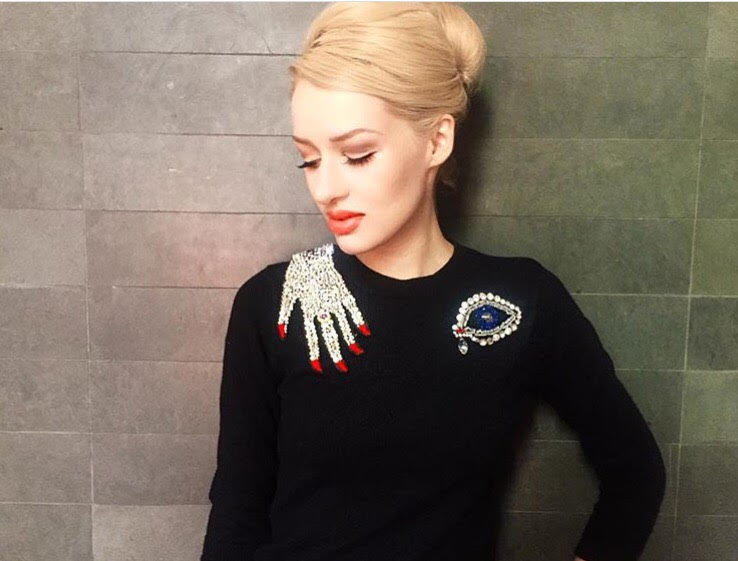By Wendy M. Walker
I recently chatted with Justine via email.
WW: I generally think of writers as being more in tune with the undercurrents of the world. Over the past year and for the foreseeable future, American politics seems to be greatly amplified. I would imagine that regardless of one's political leanings, the level of "noise" has to take its toll. How has the influx of news over the last year affected your writing?
JC: I imagine the noise has taken its toll on everyone in some way or another. It would be untrue to say I haven’t felt overwhelmed by it some of the time. What I’ve found, though, is that I’m more productive. It feels easier now, more appealing, to check out of reality for a minute and throw every shred of my energy and focus onto a project. Some of my work, this chapbook for example, has taken a more fantastical bend. Maybe that’s an effort to make something that looks as different as possible from the present world, although I’ve always had a thing for eerie fairy tales. But yes, I do feel more grateful than ever for the escape that writing offers. Particularly the early morning hours when it’s still quiet out and I haven’t yet had the chance to see any appalling headlines. I try to do most of my work then. And when I can’t seem to buckle down and write properly, I make bread. One can work a lot of frustration out through kneading.
“It feels easier now, more appealing, to check out of reality for a minute and throw every shred of my energy and focus onto a project.”
WW: You're an editorial assistant with No Tokens, which has published an extensive list of notable authors. How has your role with the journal affected your own writing?
JC: Just getting exposure to such a varied group of talented authors, many of whom have been new to me, has shaped the way I approach writing and reading. I have a much broader appreciation for poetry now. I didn’t have the chance for so much interaction with it before working with No Tokens, and now I have this whole list of specific pieces from past issues that I often revisit plainly because I enjoy them so much. Poets amaze me. My time on staff has generally made me a more careful reader and a better editor of my own fiction. Everyone who works on the journal has such bright thoughts about the writing we receive, I’m glad it’s rubbed off on me a bit.
WW: There has been a push in recent years to elevate diverse voices and balance the numbers in publishing. Is the industry there yet? As both a writer and a person involved with a publication, do you think more needs to be done? And if so, what?
JC: I’d love it if I could walk into any bookstore and find lives like my own reflected more abundantly and realistically in the inventory. I guess I won’t feel that enough has changed until everyone can do that.
As I write this I find my thoughts getting caught on my use of the word ‘realistically’. Perhaps what I really meant was ‘truthful’. Many of the books I love couldn’t be described as realistic, and I don’t necessarily favor storylines or characters that mirror reality. But I think there is a difference between reality and truth in fiction. There seems to be such a surplus of gratuitously tragic queer characters not just in writing but in television and films, too. Some of those representations may reflect parts of actual lives, but they miss a world of truth. What disturbs me is how rare it still feels to a find a book that depicts the wholeness of dyke lives in all their joy and complexity. So much magic to work with and yet we always seem to get murdered by the end. Hm.
WW: Tell me about your creative process.Your work in this chapbook includes artwork. Do you often approach writing with a visual element? Which comes first for you...the artwork or the words?
JC: In the case of this project, the artwork came first. I didn’t originally intend to have written accompaniments to the illustrations, but when I finished enough drawings to lay them out and see them in some kind of order, I realized there were little stories, moments of a story, bobbing at the surface of each one. It was actually during the big eclipse last summer. I totally flaked on buying the special glasses beforehand and I couldn’t get my act together to make one of those cereal box viewers. Anyway, I got paranoid about accidentally blinding myself so I went home and shut all the curtains and spent the afternoon imagining what kind of cautionary tales I could pull out of these images. I thought about some of the stories I grew up with. Old Germanic children’s books are great. Terrifying and oddly sort of funny. Of course, Der Struwwelpeter made a lasting impression on me. Max und Moritz, too. I wanted to touch on that dark, moralistic humor with these pieces.
WW: Can you share with us what you're working on next?
JC: Right now, I’m editing my first collection of short stories. It’s been a lot of fun to go back through them all, some of which I began years ago, revisiting the characters and seeing how the stories fit together as a whole. My agent is a really gifted editor, so I feel lucky to get to work through the revision process with her. I’m also currently writing a novel.
Justine's feature ends on Tuesday. We'll have one more piece posted on Monday. To see all of her news and work, go here. Her chapbook is available for pre-order and should be ready for shipping next week. Better yet, order the whole series!

